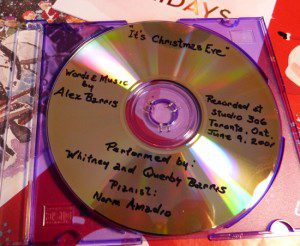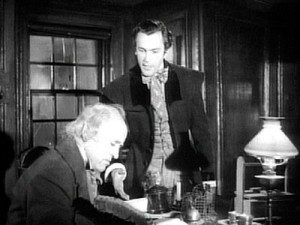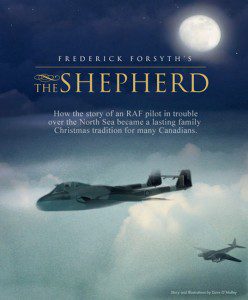
A number of Christmases ago, my father Alex called me. He was worried about something. I asked him what was wrong. He said he was facing a dilemma. He had just written a Christmas song and wanted one of our two daughters to record it. Since both were good singers, he didn’t know which to choose.
“Dad, I don’t see a problem,” I said. “They both sing. Why not ask them to record it together? They can sing it in harmony.”
Well, it was one of those times in my life when instinct proved to be bang on. My father approached both our daughters – Quenby, the teacher, and Whitney, the actor/singer – and they agreed to work on it together.
They rehearsed with renowned Toronto pianist, Norm Amadio, who would accompany them in the studio recording. Then, in June 2001, pianist Norm, singers Quenby and Whitney, and composer-lyricist-producer Alex gathered in a Toronto sound studio for the recording session. The song wasn’t about silent nights or reindeer or even Santa Claus.
“It’s a song about the night nobody writes songs about,” my dad told us. “It’s simply titled, ‘It’s Christmas Eve.’”

Often, this time of year, we pause and ponder things. Amid all the commercialism, rushing around and hype, we wonder if any of us gets the point. How can we learn to forgive, be charitable and do better? Do we believe or don’t we believe? Are we able to connect as human beings with each other, or as Charles Dickens wrote in “A Christmas Carol,” when “men and women seem by one consent to open their shut-up hearts freely, and to think of people … as if they really were fellow-travellers to the grave and not another race of creatures bound on other journeys.” We wonder, is Christmas relevant?
Well, I don’t happen to be a believer in the religious symbols of Christmas. But I do believe in giving. I do try to care about others. As for Christmas relevance, I guess I believe in those traditions we learn from our parents and attempt to preserve. On the weekend, we trekked into the woods, felled an evergreen and brought it home for decorating. Leading up to Christmas, we watch movie favourites, such as “It’s a Wonderful Life.” We enjoy those once-a-year eggnogs. And we have one of our daughters put the last decoration – a hand-made paper angel created by one of them in grade school in the 1980s – atop this year’s tree.

One of our annual rituals happens on Christmas Eve. We tune in to CBC Radio One at 6:30 p.m. and hear a recording of the late CBC announcer Alan Maitland, reading from “The Shepherd.”
“While waiting for control tower to clear me for takeoff,” Maitland begins reading, “I glanced out through the cockpit canopy at the German countryside, white and crisp beneath a December moon…”
The novella, written in 1975 by Frederick Forsyth, depicts a British jet pilot about to fly home during the Cold War era from a German air force base to Britain to be with his family on Christmas Eve. En route, the pilot discovers the jet has suffered a complete electrical failure – all his communication gear dead – and worse, that all of the British landscape ahead is enshrouded in fog. He can fly on, but is virtually lost and blind.
Eventually, his desperate signals for help, via recognizable airplane-in-distress flight patterns in the sky above the fog, attract a Second World War vintage Mosquito aircraft to serve as a “shepherd” to bring him through the fog to a derelict air base in England. Safely down, the jet pilot attempts to find the Mosquito pilot who saved him. The results of his search are both perplexing and chilling. But as often as our family listens to this Christmas classic – every year since its first broadcast on CBC in 1979 – we never tire of its tension, the dénouement or the final words of Johnny Kavanagh’s wartime RAF batman.
“Good night, sir,” says old Joe. “Happy Christmas.”
Last Friday, as friends and co-workers rushed into the final weekend before Christmas – planning their last-minute shopping, organizing their party schedules and checking their gift lists twice – I took the night off. It had been a grueling week at the college where I teach. I wanted to get into the seasonal spirit by enjoying a jazz night, featuring pianist Bernie Senensky, bassist Gord Mowat and our daughter Whitney Ross-Barris. As the last set, full of Christmas favourites, came to a close, Whit paused and looked my way and said, “This one’s for my dad.”
She sang her grandfather’s song, “It’s Christmas Eve.” Thanks to my dad’s one-time dilemma and our daughters’ obliging all those years ago, I got into the spirit of the season again this year. Yes, for me, Christmastime remains relevant and rich with family moments such as these.
To you and yours, the best of the season.